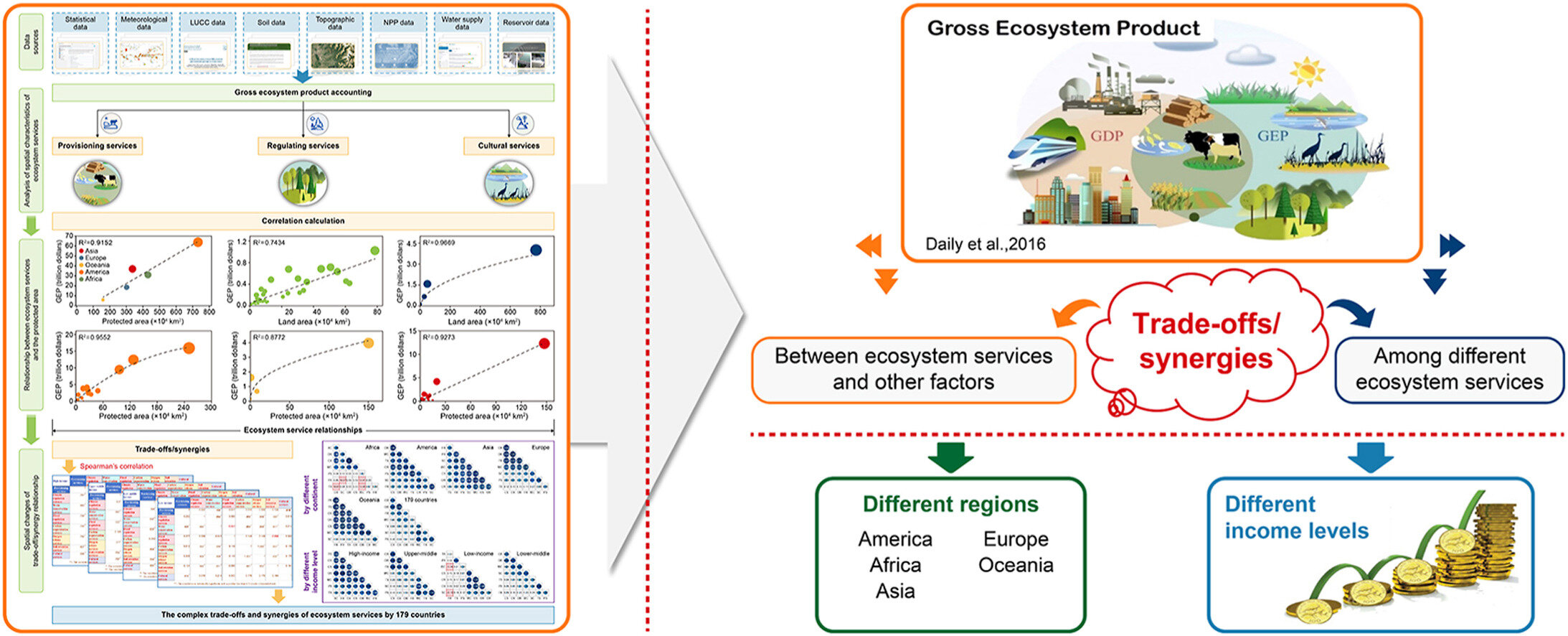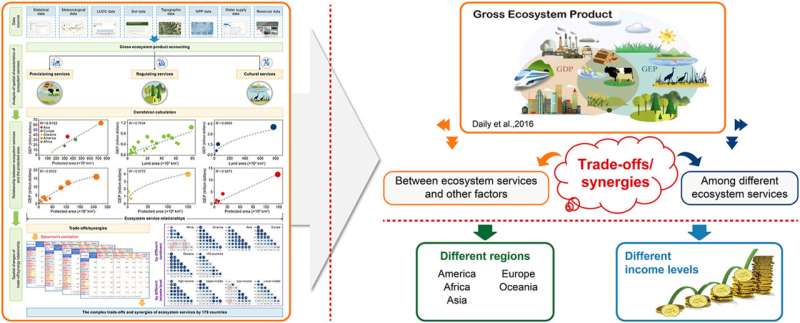

Tradeoffs and synergies between ecosystem services constitute an important topic in ecosystem management. The value of each service is substantially influenced by human activities, and changes will affect human decisions. Given the variability in tradeoffs and synergies, the simultaneous optimization of multiple ecosystem services presents a considerable challenge.
In a study published in Environmental Science and Ecotechnology, a team from the Chinese Academy of Environmental Planning, which has completed China’s Green GDP Accounting (2004–2022) and China’s Gross Ecosystem Product (GEP) Accounting (2015–2022), conducted an estimation of the ecosystem services of forests, wetlands, grasslands, deserts, and farmlands, analyzed the GEP composition and distribution across 179 countries by using remote sensing data with a spatial resolution of 1 km.
Quantifying the GEP showed that global ecosystems contribute US $112–197 trillion to the global economy in 2018, with an average of US $155 trillion (constant price in 2017). The ratio of GEP to GDP was found to be 1.85. Forest and wetland ecosystems provided a wide range of valuable services, these two ecosystems accounted for nearly 80% of the total GEP.
The five countries with the highest total GEP are Brazil, the United States, China, Russia, and Canada. Of the 179 countries analyzed, only 84 demonstrated concurrent growth in both GEP and GDP, with China, Indonesia, and Australia among the top 10 in GEP also experiencing GDP growth.
Strong synergies were found between oxygen release, climate regulation, and carbon sequestration services, the provisioning service and cultural service provided by global ecosystem also show strong synergy, while tradeoffs were observed between flood regulation and other services.
A comparison of the synergy among GEP indicators in the countries with different income levels showed that in high-income countries exhibited a significantly larger number of ecosystem service pairs that demonstrate strong synergy compared to low- and lower-middle-income countries. In low-income countries, a tradeoff was observed between flood regulation, water conservation, and soil retention services.
In African nations, addressing flood-related issues may hinder optimal regional ecosystem management, as tradeoffs were observed between soil retention and flood regulation services, climate regulation, and cultural services. Though reservoirs can mitigate flood risks and provide water supply, they may also alter habitats, disrupt aquatic ecosystems, and impact services like biodiversity conservation, recreation, and cultural services.
The authors have posted their datasets for others to use if they wish to explore these topics further.
More information:
Jinnan Wang et al, Exploring the complex trade-offs and synergies of global ecosystem services, Environmental Science and Ecotechnology (2024). DOI: 10.1016/j.ese.2024.100391
Provided by
Eurasia Academic Publishing Group
Citation:
Global ecosystem contributes trillions in its services with key synergies and tradeoffs, study finds (2024, March 12)
retrieved 12 March 2024
from https://phys.org/news/2024-03-global-ecosystem-contributes-trillions-key.html
This document is subject to copyright. Apart from any fair dealing for the purpose of private study or research, no
part may be reproduced without the written permission. The content is provided for information purposes only.

